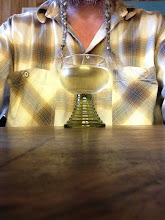Remember it's our book launch this Wednesday for Olympia Moments Ltd. Details as above. Only 100 copies available and super collectable. Here's the press release (not that we've contacted the press).
BOOK PRESS RELEASE: OLYMPIA MOMENTS LTD
By JULIE COOK and PAUL DAVIES
Olympia
Moments Ltd is a book from photographer/writer team Julie Cook and Paul Davies
on the subject of a group of erotic dancers who founded their own ‘underground’
club scene in the back rooms of London pubs between 1998-2008. In it we are
presented with a secret world all too often misunderstood, and Cook and Davies
are anxious to up-end stereotypes and examine the freedoms these women and
their invited audiences enjoyed.
This
artist’s book extends Cook’s interest in voyeurism and takes on different
viewpoints from the empty interiors, portraiture of the women and the body
language of the performers and their audience. Writing partner Davies includes
some drawings as well as a contextualizing essay. The volume is modest in size
(168mm x 128mm) but sumptuous in detail featuring 67 litho colour plates and
comes leather bound in a numbered edition of 100.
Back
in Black Publishing (self published) 2014, Soft back with leather











